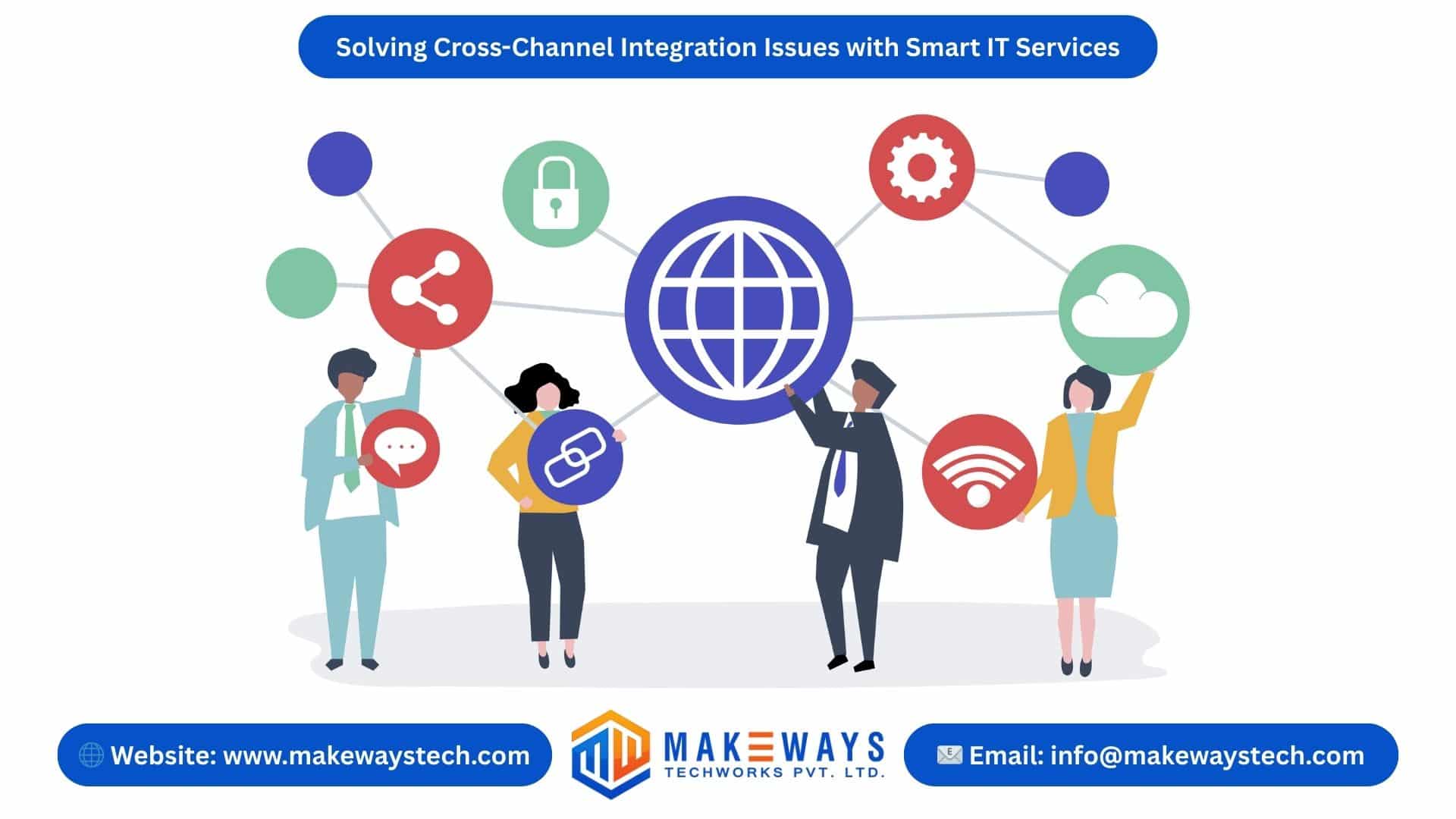Running an e-commerce business today is no longer just about having a website or a mobile app. Customers interact with your brand through multiple touchpoints—social media, marketplaces, mobile apps, offline stores, and even customer support chats. The real challenge? Ensuring all these channels are connected seamlessly. Disconnected systems create confusion, delayed responses, and poor customer experiences, which ultimately hurt sales and brand reputation.
Let’s break down this pain point and explore how smart IT services can bridge the gaps.
1. What Are Cross-Channel Integration Issues?
Cross-channel integration issues occur when your different platforms do not communicate effectively. For example:
- Your website shows one price, while your app shows another.
- A product is marked “in stock” online but is actually unavailable in-store.
- Customers start their journey from a social media ad but drop off because the checkout process on your website is clunky.
- Customer support lacks access to the latest order status, frustrating buyers.
This disconnect damages trust and makes customers abandon brands in search of smoother experiences.
2. Why Do Businesses Struggle with Integration?
Several factors contribute to these challenges:
- Legacy systems: Older POS or ERP solutions that don’t integrate with modern platforms.
- Multiple vendors: Different platforms for inventory, payments, and marketing that lack synchronization.
- Manual processes: Teams often update stock or customer data manually, leading to errors.
- Rapid growth: Businesses expanding quickly may outgrow their existing systems and struggle to adapt.
3. How IT Services Solve Cross-Channel Integration
With the right IT services, businesses can transform these challenges into opportunities:
a. Unified Data Management
Centralizing all customer, product, and inventory data in a single system ensures consistency across channels. This avoids discrepancies like mismatched prices or availability.
b. API-Driven Integrations
Custom APIs can connect e-commerce sites, apps, ERP, CRM, and POS systems so they update in real time.
c. Omnichannel Customer Experience
By syncing systems, businesses can create unified experiences such as:
- A customer buys online and picks up in-store.
- Loyalty points earned offline reflect instantly online.
- Order tracking and returns remain consistent across all platforms.
d. Automation and AI-Powered Solutions
Automation reduces manual errors, while AI tools personalize customer journeys by analyzing behavior across touchpoints.
e. Scalable Cloud Solutions
Cloud-based IT infrastructure enables smooth scaling without disruptions, ensuring your business grows without integration headaches.
4. Benefits of Solving Integration Issues
- Improved customer trust – customers know they’ll get accurate information everywhere.
- Higher sales conversions – a seamless journey reduces drop-offs.
- Operational efficiency – less manual work and fewer mistakes.
- Data-driven insights – unified data helps you understand your customers better.
How MAKEWAYS TECHWORKS Can Help
At MAKEWAYS TECHWORKS, we specialize in solving complex integration challenges for e-commerce businesses. Our team provides:
- Custom API & software integrations for smooth cross-platform connectivity
- Cloud solutions to keep your systems agile and scalable
- Mobile & web app development for seamless omnichannel experiences
- UI/UX design that ensures customers enjoy a unified journey
- Cybersecurity solutions to protect integrated systems from risks
We go beyond simply connecting systems—we ensure your brand delivers experiences that earn customer loyalty.
🌐 Website: www.makewaystech.com
📧 Reach out: [email protected]
#ecommerce #digitaltransformation #omnichannel #customersuccess #cloudsolutions #itservices #businessgrowth #makewaystechworks
